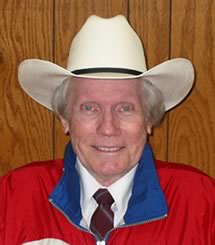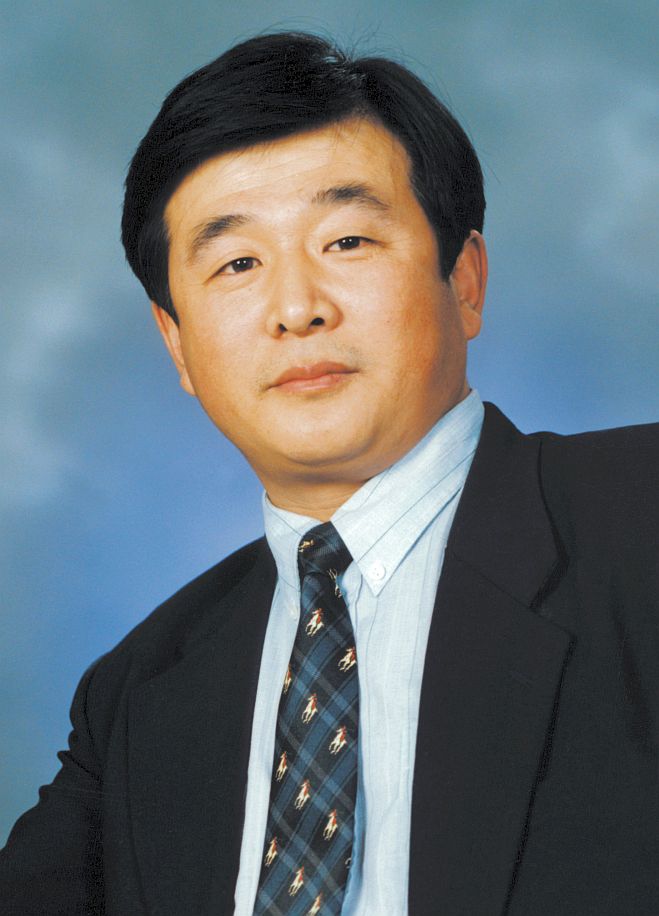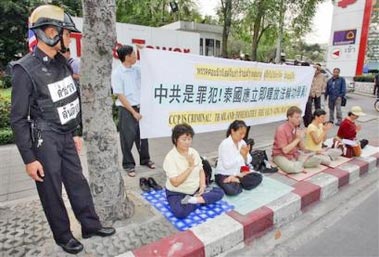 Earlier this week, Australian blog Blueberry Fool published a humorous Youtube video of the ABC’s “The Chaser’s War on Everything” take on the American Baptist Minister Fred Phelps. Phelps is notorious in the States for his vehement anti-gay activism. He is the pastor of a small congregation called the Westboro Baptist Church in Topeka, Kansas. The church and its tiny congregation of one hundred people (most of who are related to Phelps) base much of its work around the belief that nearly every tragedy in the world is linked to homosexuality. Its slogan and main website is "God hates fags". The group also hosts sites named godhatesamerica.com and more puzzlingly godhatessweden.com where Phelps pleads with God’s elect to “leave Sweden now”.
Earlier this week, Australian blog Blueberry Fool published a humorous Youtube video of the ABC’s “The Chaser’s War on Everything” take on the American Baptist Minister Fred Phelps. Phelps is notorious in the States for his vehement anti-gay activism. He is the pastor of a small congregation called the Westboro Baptist Church in Topeka, Kansas. The church and its tiny congregation of one hundred people (most of who are related to Phelps) base much of its work around the belief that nearly every tragedy in the world is linked to homosexuality. Its slogan and main website is "God hates fags". The group also hosts sites named godhatesamerica.com and more puzzlingly godhatessweden.com where Phelps pleads with God’s elect to “leave Sweden now”.The 76 year old Phelps and at least 10 of his 13 children are lawyers. This means that any legal challenges to his hate campaigns (and there have been many) is met with an aggressive and litigious response, which has often resulted in large court-awarded penalties to the Church. The Phelps family is quite insistent on their First Amendment rights to freedom of speech. Thanks to their legal prowess, Westboro Church does not accept contributions from outsiders. The church complex on Topeka's southwest side where Phelps and his extended family live contains modest wood houses surrounded by a spacious yard with a swimming pool, running track, tennis and basketball courts, and the playground. Above the compound, an American flag flies upside down, the signal for distress. Above that a Canadian flag flies upside down, Phelps' response to a Canadian law prohibiting picketing at funerals there.
And therein lies the rub of his importance. Phelps and his crackpot church would simply be a matter of mirth to most if it wasn’t for his activism which has inspired law changes in the US and Canada. It started when Phelps organised demonstrations at the funerals of AIDS victims. He then demonstrated at the funeral of Matthew Shepard, a gay man who was murdered in Wyoming. And then for obscure reasons somehow relating to homosexuality, he held protests at the funerals of such luminaries as Frank Sinatra, Barry Goldwater, Ronald Reagan and William Rehnquist. Phelps celebrated the 9/11 attacks as the just desserts of Western decadence. Since 2003, he has been demonstrating at the funerals of U.S. military personnel killed in Iraq to celebrate the deaths of those killed while defending a "fag" nation.
 As a result, the US and Canada have passed a number of controversial laws to inhibit Phelps actions. Canada’s custom authorities confiscated the group’s signs and the country has introduced ‘hate crime’ legislation in response to his behaviour. On May 24, 2006, the United States House and Senate passed bills which would ban protests at military funerals in national cemeteries. The Respect for America's Fallen Heroes Act would bar protests within 300 feet of the entrance of a cemetery and within 150 feet of a road into the cemetery from 60 minutes before to 60 minutes after a funeral. Those violating the act would face up to a $100,000 fine and up to a year in prison. At a state level, at least 17 states are either considering bans on protests near funeral sites immediately before and after the ceremonies, or have already banned them. The constitutional validity of these bans has not yet been tested in the courts. In July this year the American Civil Liberties Union (ACLU) supported a suit in Missouri raised by Phelps supporters challenging the ban on protests at military funerals in that state. They claim the law banning such pickets infringed on the members' religious freedoms and right to free speech. "I told the nation as each state went after these laws that if the day came that they got in our way, that we would sue them," said Phelps' daughter, Shirley Phelps-Roper, the lead plaintiff and a spokeswoman for the Topeka-based church. "At this hour, the wrath of God is pouring out on this country." Anthony Rothert, ACLU legal director in St. Louis, said “this law really was made to silence a particular group, and I'm able to see that that's dangerous. It may be a group that I disagree with that the government is trying to silence today, but it could be a group that I agree with tomorrow."
As a result, the US and Canada have passed a number of controversial laws to inhibit Phelps actions. Canada’s custom authorities confiscated the group’s signs and the country has introduced ‘hate crime’ legislation in response to his behaviour. On May 24, 2006, the United States House and Senate passed bills which would ban protests at military funerals in national cemeteries. The Respect for America's Fallen Heroes Act would bar protests within 300 feet of the entrance of a cemetery and within 150 feet of a road into the cemetery from 60 minutes before to 60 minutes after a funeral. Those violating the act would face up to a $100,000 fine and up to a year in prison. At a state level, at least 17 states are either considering bans on protests near funeral sites immediately before and after the ceremonies, or have already banned them. The constitutional validity of these bans has not yet been tested in the courts. In July this year the American Civil Liberties Union (ACLU) supported a suit in Missouri raised by Phelps supporters challenging the ban on protests at military funerals in that state. They claim the law banning such pickets infringed on the members' religious freedoms and right to free speech. "I told the nation as each state went after these laws that if the day came that they got in our way, that we would sue them," said Phelps' daughter, Shirley Phelps-Roper, the lead plaintiff and a spokeswoman for the Topeka-based church. "At this hour, the wrath of God is pouring out on this country." Anthony Rothert, ACLU legal director in St. Louis, said “this law really was made to silence a particular group, and I'm able to see that that's dangerous. It may be a group that I disagree with that the government is trying to silence today, but it could be a group that I agree with tomorrow."Some suspect that Phelp’s outrageous behaviour is an elaborate act. It is possible he may be a prankster or even an agent provocateur deliberately trying to embarrassment the mainstream Religious Right’s more understated intolerance of homosexuality. An alternate theory is that Phelps and his legal-eagle family try to provoke others into attacking them physically so that they can sue. To this end they deliberately choose high-profile or heart-wrenching cases and picket at extremely emotional times such as funerals.




